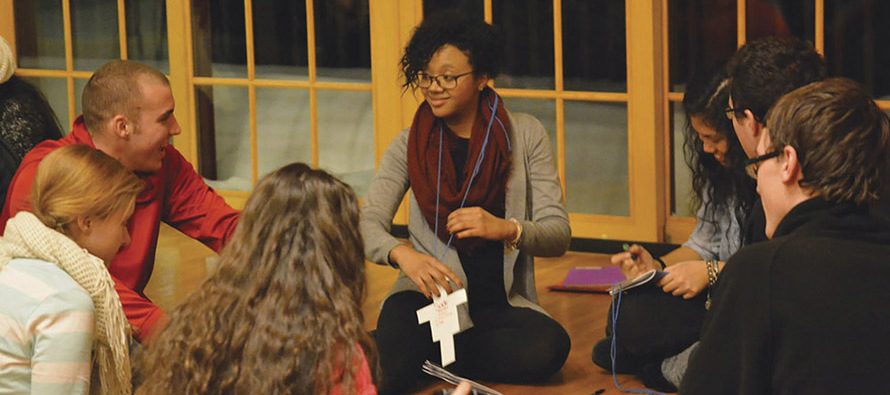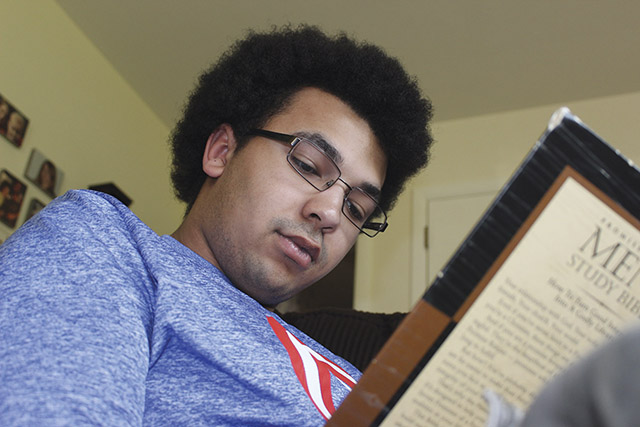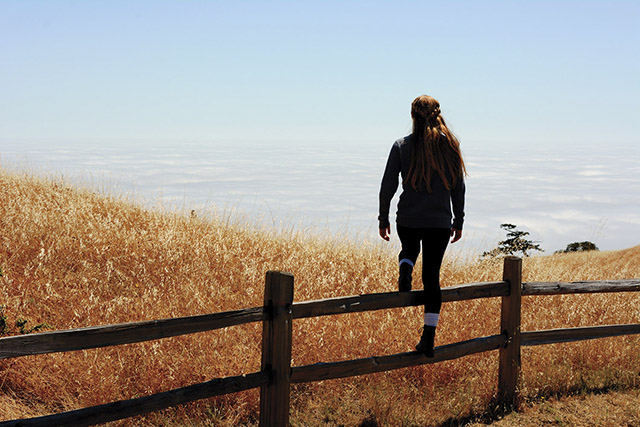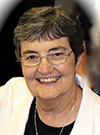5 ways to better prayer

Discussing prayer or praying with others can help strengthen your spiritual life. (Image courtesy of the Catholic Student Association at Rutgers University)
THROUGH PRAYER we find meaning, strength, and direction for our lives. We become more and more the kind of person we really want to be. Here are five things you can do to help you on the way.
1. Ask God
Being a person of prayer is not something we achieve by our own strenuous effort. I am reminded of a story from the desert fathers, early Christian hermits who lived in the Egyptian and Palestinian desert, that illustrates this point. A young monk asked the old Master, “How long will it take me to achieve enlightenment?” The Master replied, “Five years.” The young monk asked, “But what if I work really, really hard?” The Master replied, “Ten years.”
Prayer is a grace God gives us. We must never forget that. But it is a grace God is eager to give. It is also a grace we can make ourselves more likely to receive. We can begin by simply asking God for the grace of prayerfulness. Our request need not be long or complicated. Turn to God in your heart and say something like this: “Dear God, I really want to know you better. Please help me to be a more prayerful person. If there’s anything I can do to help this come about, let me know. Amen.” It is good to ask God for things. After all, the “Our Father,” the prayer Jesus taught us, is in part a list of requests to God. Adding prayerfulness to that list seems very worthwhile to me.
2. Slow down and notice things
We live in an age characterized by busyness and excessive speed. Consequently, many of us are running around like hyperactive chipmunks! You, too, may find yourself rushed. Such busyness breeds impatience. Be honest. Do you ever get impatient because your microwave or computer is “too slow”? Do you get antsy waiting in check-out lines, at red lights, or when a friend is five minutes late?

In the 19th century, historians say, when people traveled by stagecoach, it was not uncommon for the coach to be two or three days late. The passengers just had to sit around and wait for the coach to come. Can you imagine people putting up with that today? No. Today we get frazzled if our airplane—which has just traveled 900 miles in two hours—arrives 20 minutes late!
It is hard to be a prayerful person if we are running around, multitasking, or preoccupied with 101 things that need to get done. One thing we have to do to become prayerful is slow down. Try this: Instead of gobbling down your food, savor each bite. Instead of rushing down the sidewalk, stroll leisurely. If you have to wait for something or someone, forgo the temptation to fill that time with work. Rather, use those few minutes to become more aware of the world around you and inside you.
Prayer begins with attentiveness. And attentiveness is something we can cultivate. We begin by noticing little things: the way the sunlight is streaming through the window, the chirp of a robin in an oak tree, the scent of the soap in our hands, the steady in-and-out of our breathing. Slowing down and being attentive are vital to prayer, for they increase our likelihood of finding traces of God in our everyday lives.
3. Begin to pray
The author E.L. Doctorow once said: “Planning to write is not writing. Talking to people about writing is not writing. Writing is writing.” We can say the same thing about prayer. Planning to pray is not praying. Talking to people about prayer is not praying. Praying is praying. And praying is essentially conversation with God.
I often begin my prayer by telling God where I happen to be at this particular time: “God, I’m feeling great today. . . . God, I’m exhausted. . . . Jesus, I’m sad and I don’t know why. . . . God, I’m so worried about so-and-so. . . . God, I’m really mad.” In prayer, it’s often good to start just where we are and go from there.
An old maxim says, “If you are too busy to pray, you are too busy.” This means we must make time for prayer by making time for it in our day just as we schedule other important activities. We don’t wait to find time for prayer or pray only when we feel like praying. If we did that, we would probably pray very little. No, if we want to become prayerful persons, we pray every day.
What time of day works best? Maybe morning is a good time, before things get too hectic. Or maybe you prefer a prayer break in the middle of the day, or in the evening when the day is winding down. Whatever time you choose, prayer must be a priority for you—because God is important to you, because you deeply desire a personal relationship with Jesus, because you really need God’s Spirit.
Prayer is a two-way street. During prayer we talk to God, but we also give God the chance to talk to us. So sometimes we use words when we pray; other times we don’t. Thomas Merton, a famous Trappist monk, once told a friend to quit trying so hard in prayer. He said, “How does an apple ripen? It just sits in the sun.”

4. Seek help
Many wonderful resources exist to help us with prayer. Countless books, for example, have been written about prayer. (I know, because I’ve written a few of them!) Devotional publications such as Take Five for Faith, Living Faith, Living with Christ, Give Us This Day, and Magnificat give short reflections for every day of the year. And don’t forget to check out some of the websites and apps on prayer.
We can get help with prayer from other people, too. Talking with friends about prayer can be very beneficial. Actually praying with them is even better. Joining (or starting) a Bible study group or a spiritual book club has helped many people. Some individuals even find a spiritual director, a person with whom they meet regularly to share their experiences of prayer and daily living. Spiritual directors can be priests, sisters, brothers, or laypersons who are not only experienced in prayer but also have skills for guiding others. How can you find one? Call your parish or a local retreat center, monastery, or convent. Or check out sdiworld.org.
3-Minute Retreats
loyolapress.com/3-minute-retreats-daily-online-prayer *
God in All Things
godinallthings.com
Pray As You Go
prayasyougo.org *
Sacred Space
sacredspace.ie *
Take Five for Faith
takefiveforfaith.com *
* These websites each have a corresponding app.
5. Experiment
There are many different ways to pray. Experimenting with various prayer forms can be healthy. Some people love to pray the Rosary; others prefer to read the psalms. Some like to take a scripture passage every day and reflect on it. Others find listening to music helpful. Some pray while walking or running; others like to sit or kneel. You might also want to try the Liturgy of the Hours, Centering Prayer, or other forms of meditation.
In our desire to become more prayerful, it is good to remember, in the final analysis, that prayer is a means, not an end in itself. We pray not only because we love prayer. We pray because we love God. And prayer is one of the chief ways we come to know and love God more. Through prayer we find meaning, strength, and direction for our lives. We become more and more the kind of person we really want to be: a person of love, integrity, compassion, forgiveness, and joy.
This article first appeared in VISION Vocation Guide 2008.
Related articles: VocationNetwork.org, “Spiritual direction for dummies (and other smart people who don’t know where to start)” and “A user’s guide on the ways to pray.”
Tags
Related
- Questions Catholics Ask: What are the different forms of prayer?
- What does “success” look like in discernment?
- How to find a guide for your vocation adventure
- Beware of bots and bad actors as you engage online
- Call stories to help you discern
- Five reasons to pray the Liturgy of the Hours
- Tune into your prayer life
- Embody your decisions
- Your mission awaits you! Pope Francis' message to young people
- My portable prayer life Read More
Most Viewed
- Find your spirituality type quiz
- Questions and answers about religious vocations
- Celibacy quiz: Could I be a nun? Could I be a brother? Could I be a priest?
- Resources for older discerners or those with physical and developmental differences
- About Vocation Network and VISION Guide


